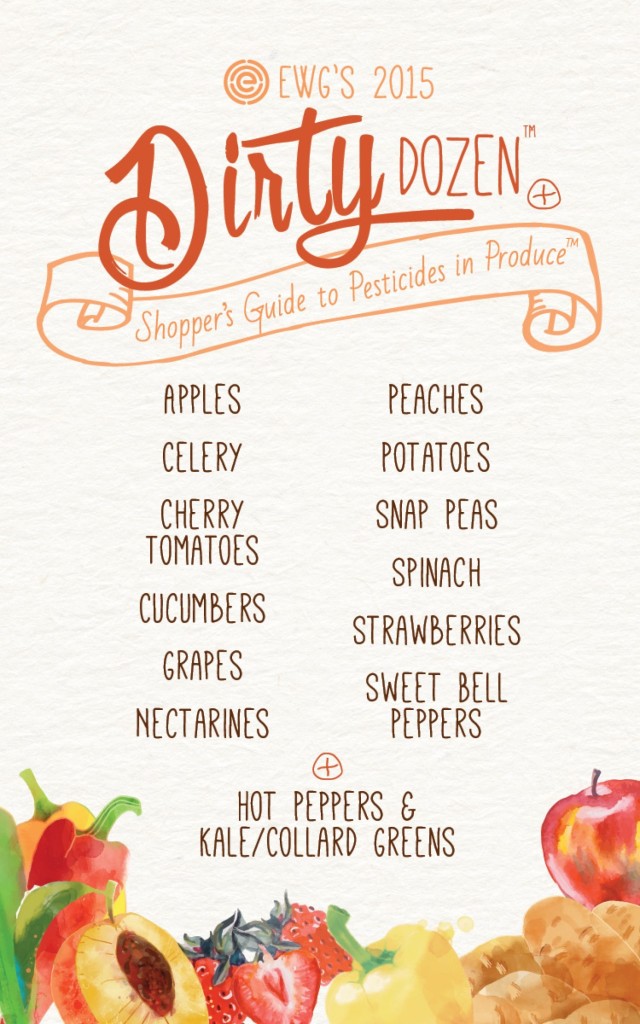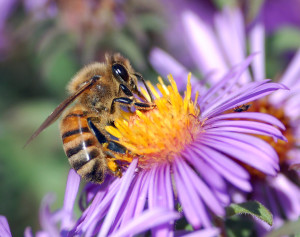Radon In My Apartment? The Spectra Pipeline
Learn in two minutes about how Spectra and ConEd plan to bring fracked gas, laced with radon, into New York via a new explosive, high pressure pipeline. This is bad for the environment and bad for New Yorkers.
Pesticide Residue in Fruits and Vegetables Associated with Low Sperm Count
 Consumption of fruits and vegetables that contain relatively large amounts of pesticide residue may affect men’s sperm counts and the number of normal-looking sperm they produce, a potential factor in fertility problems, Harvard University researchers reported Monday.
Consumption of fruits and vegetables that contain relatively large amounts of pesticide residue may affect men’s sperm counts and the number of normal-looking sperm they produce, a potential factor in fertility problems, Harvard University researchers reported Monday.
The study by researchers at the T.H. Chan School of Public Health, described as the first to link pesticides in fruits and vegetables to reproductive problems, leaves many questions unanswered. Because of the study’s design, the researchers could not determine whether the pesticide residue caused the problems they found in the sperm of 155 men who provided samples at a fertility clinic.?However, the results were clear enough to “suggest that exposure to pesticides used in agricultural production through diet may be sufficient to affect spermatogenesis in humans,” the researchers wrote in their paper, published online in the journal Human Reproduction.
A Top Weedkiller Could Cause Cancer: Should We Be Scared?
An international committee of cancer experts shocked the agribusiness world a few days ago when it announced that two widely used pesticides are “probably carcinogenic to humans.” The well-respected International Agency for Research on Cancer published a brief explanation of its conclusions in The Lancet and plans to issue a book-length version later this year.?The announcement set off a wave of feverish reaction, because one of these chemicals, glyphosate, is a pillar of large-scale farming. Better known by its trade name, Roundup, glyphosate is the most popular weedkiller in the world.
Here is another link to a Forbes article that says WHO agrees its “probably carcinogenic.”
EPA Restricts Use of Pesticides Suspected of Killing Bees
 The EPA has issued a moratorium on use of a type of pesticide theorized to be responsible for plummeting bee populations. Neonicotinoids are a class of common pesticides that recent research has pointed to as being harmful to birds, bees and other animals. The EPA previously approved their use, but outcry over the damage being done has caused the agency to reverse course while more studies are done. On Thursday, the EPA sent letters to people and companies that have applied for outdoor use of the pesticide, saying that new use permits won’t be issued.
The EPA has issued a moratorium on use of a type of pesticide theorized to be responsible for plummeting bee populations. Neonicotinoids are a class of common pesticides that recent research has pointed to as being harmful to birds, bees and other animals. The EPA previously approved their use, but outcry over the damage being done has caused the agency to reverse course while more studies are done. On Thursday, the EPA sent letters to people and companies that have applied for outdoor use of the pesticide, saying that new use permits won’t be issued.
There is No Such Thing as Cheap Food
Advocates for more sustainable food production are working with farmers, public health professionals, economists, scientists, and others to account for hidden costs of our food through?True Cost Accounting, which assigns value to the social, environmental and health impacts of producing food. Taking these costs into account is essential; the economic cost of global environmental degradation from industry is estimated at US$2 to US$5 trillion per year. It goes to show you how your $.99 hamburger costs more than you think.

Comments are closed.